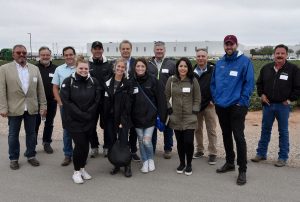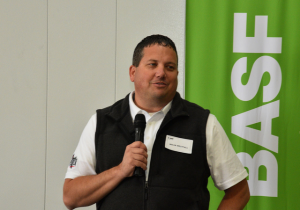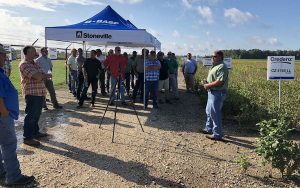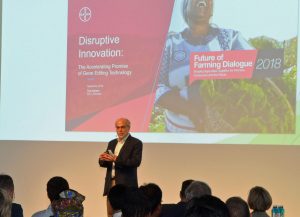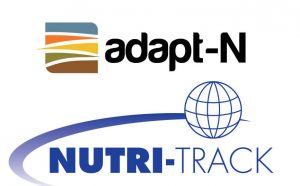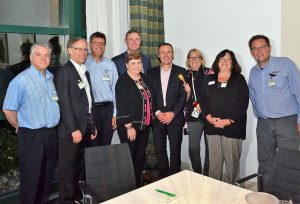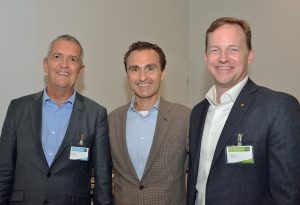 A new study shows growing demand for cover crops, but agricultural retailers continue to face challenges when it comes to expanding that market.
A new study shows growing demand for cover crops, but agricultural retailers continue to face challenges when it comes to expanding that market.
The study, conducted by Datu Research, LLC, found 89 percent of ag retailers have offered cover crops and services in the past two years to farmers who use them to anchor the soil between growing seasons. The practice has shown benefits in the areas of soil erosion, fertility, water retention, weed and pest control.
“Ag retailers and Certified Crop Advisers are a trusted go-to source for farmers,” said Dr. Angel Cruz, lead author of the study. “We wanted to understand their role in promoting cover crops and see what it would take to expand that role.”
The survey, developed in cooperation with the Agricultural Retailers Association (ARA), was distributed to ARA members and Certified Crop Advisers in the Midwest. Many respondents reported offering their customers cover crop advisory services (83%), selling cover crop seed (56%) and cover crop termination services (44%).
Still, these products and services account for less than five percent of total revenue, the study found. Many respondents described mutually reinforcing challenges: a lack of customer demand, insufficient evidence of cover crop benefits in their region, and “uncertain or negative profitability.”
Despite the low revenue they generate, cover crop services were cited by 60 percent of respondents as a way “to diversify your product and service offerings.” Respondents also cited “to stay ahead of the competition” (40%), and “to grow your customer base” (39%) as justification for incorporating cover crop products into their business model.
“We apparently have a long way to go,” said Cruz. “These results will be useful in developing a business case for ag retailers to integrate cover crops.”
The study recommends engaging state agribusiness associations, along with increased collaboration between agricultural retailers and agricultural conservation professionals such as local soil and water conservation districts and USDA’s Natural Resources Conservation Service (NRCS).
Even more important, to increase customer demand will likely require providing farmers more solid answers on the economics of cover crops and how to manage them for local conditions.
“Ag retailers have always worked to assist their farmer customers in conservation practice implementation,” said ARA President and CEO Daren Coppock. “The adoption of cover crops will continue at a slower rate until farmers can see the true value in the practice. Our retailer members appreciate the survey results and any subsequent findings to work with their customers in making the best decisions for their operations and the environment.”
ARA will launch its Sustainability Programming for Agricultural Retailers and CCAs (SPARC) initiative, which includes the utilization of cover crops and other conservation practices, at its upcoming Conference and Expo on Thursday, November 29. For more information, please visit www.aradc.org/conference.
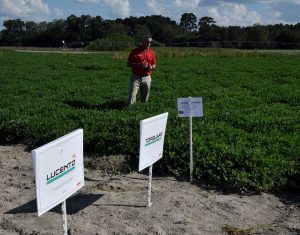 FMC Agricultural Solutions held a field day at its Sparks, GA research station last week, hosted by the FMC technical service team with a plot tour, presentations and certification training.
FMC Agricultural Solutions held a field day at its Sparks, GA research station last week, hosted by the FMC technical service team with a plot tour, presentations and certification training. fungicide for the 2019 season, pending EPA approval. The new fungicide, which is expected to be approved by the end of the year, can be used on a variety of crops but since the field day was being held in peanut country, that was a big focus.
fungicide for the 2019 season, pending EPA approval. The new fungicide, which is expected to be approved by the end of the year, can be used on a variety of crops but since the field day was being held in peanut country, that was a big focus.
